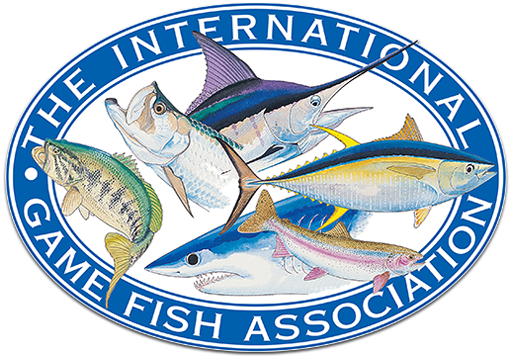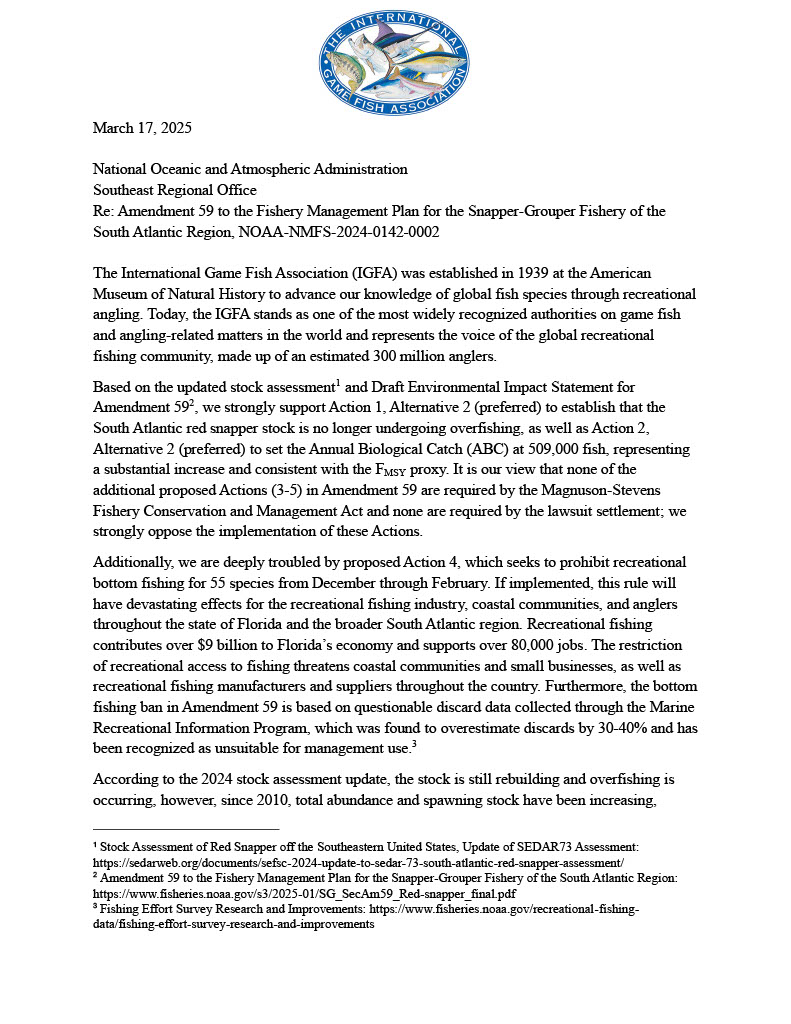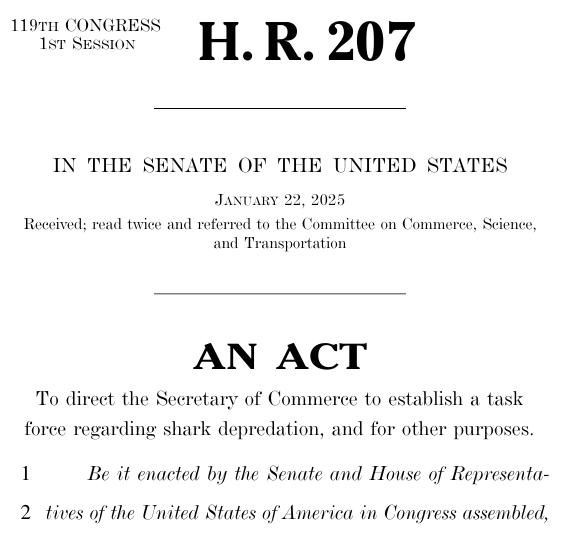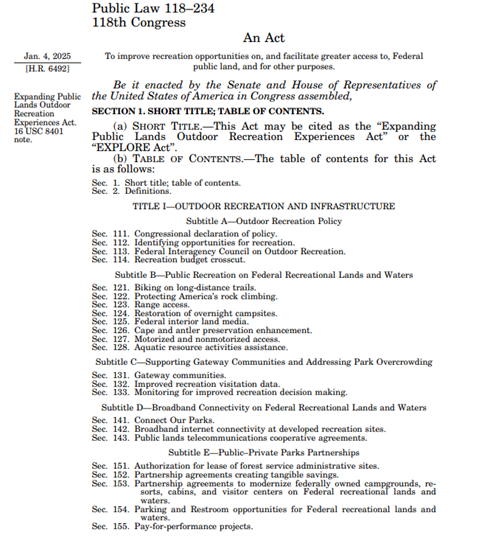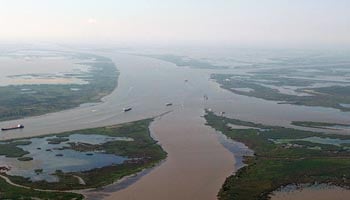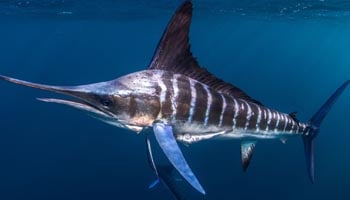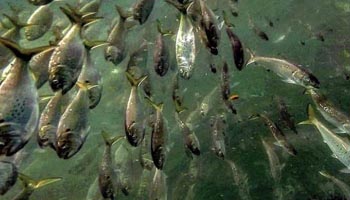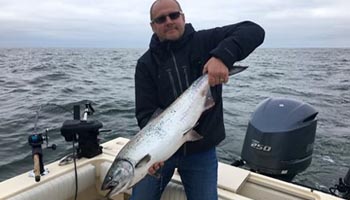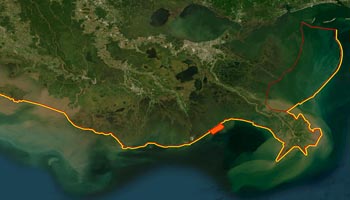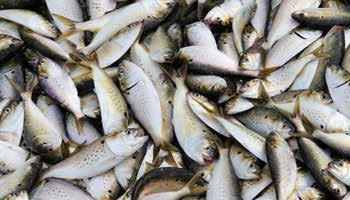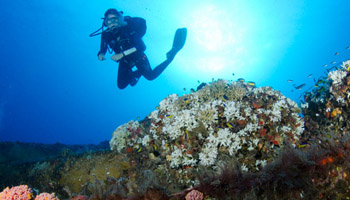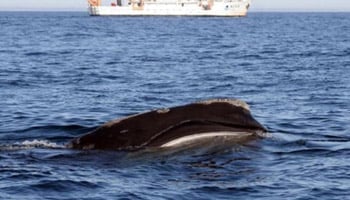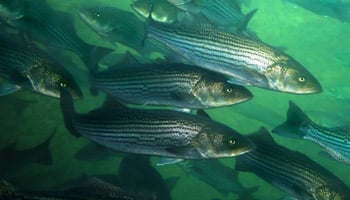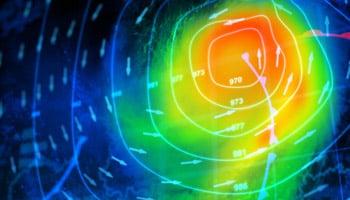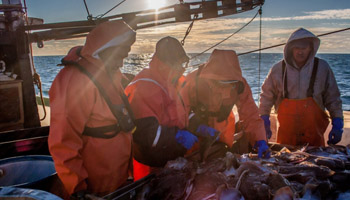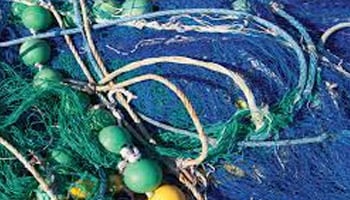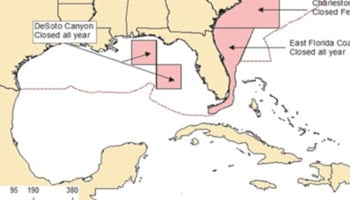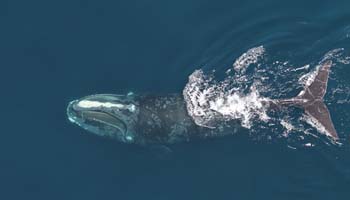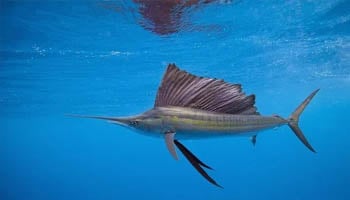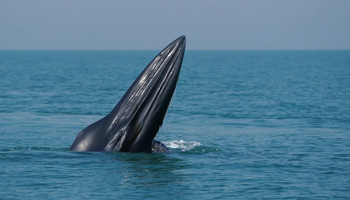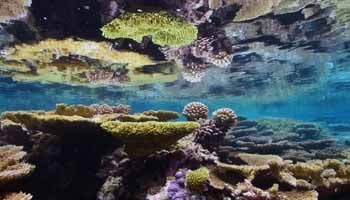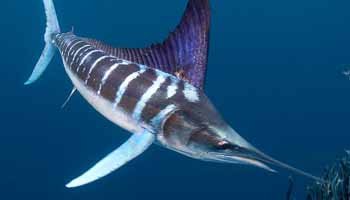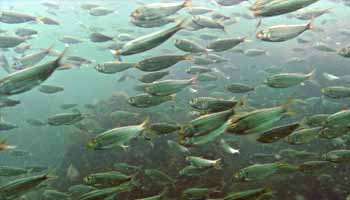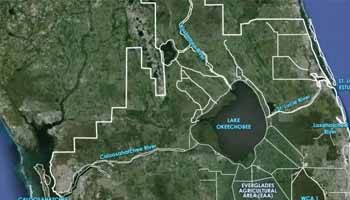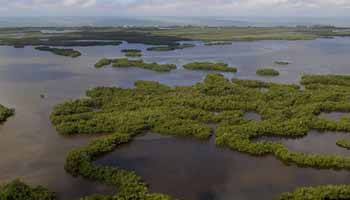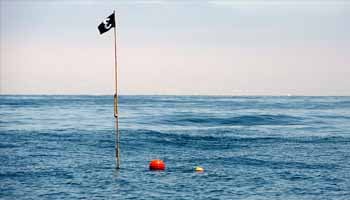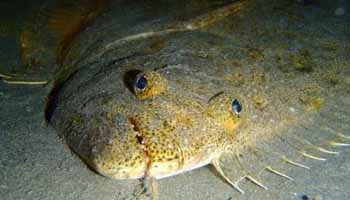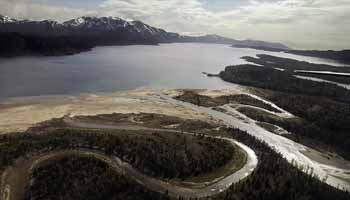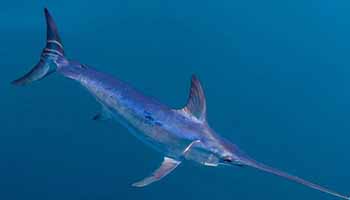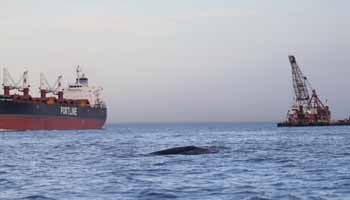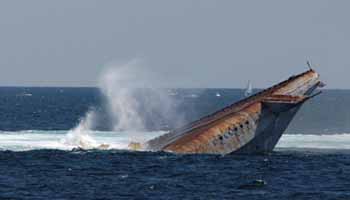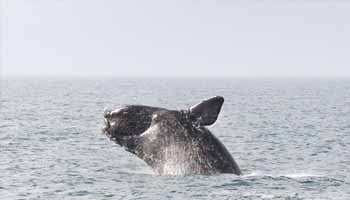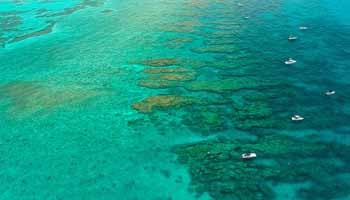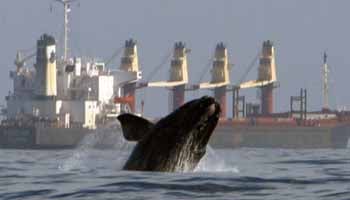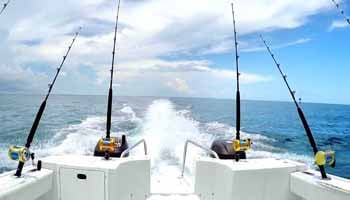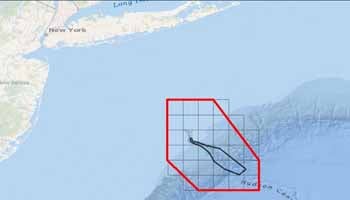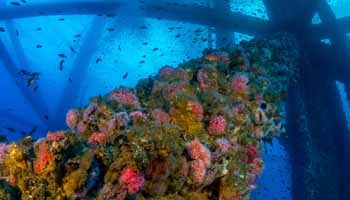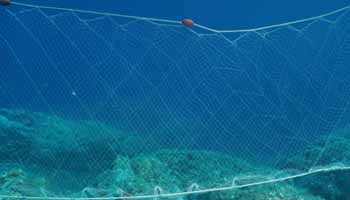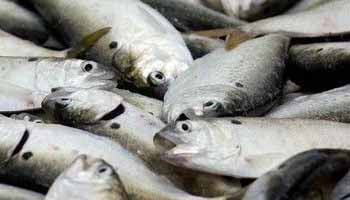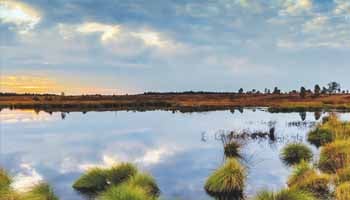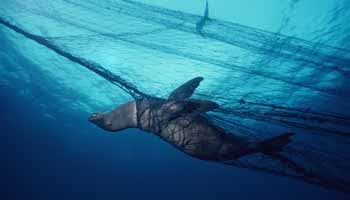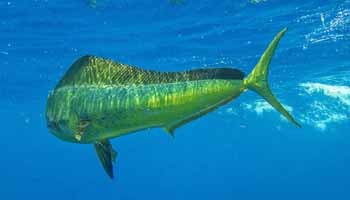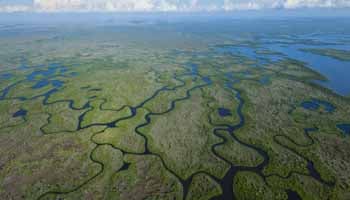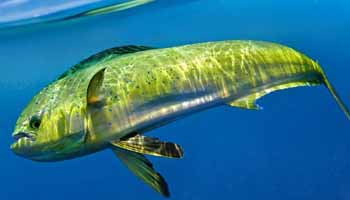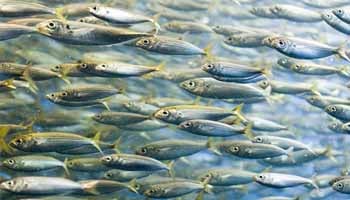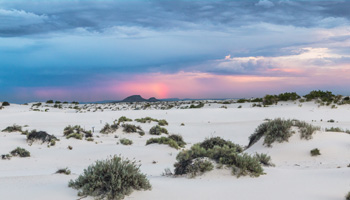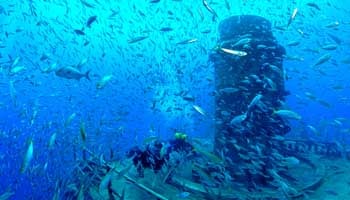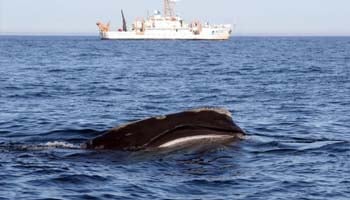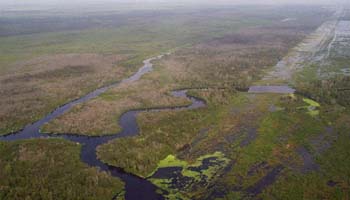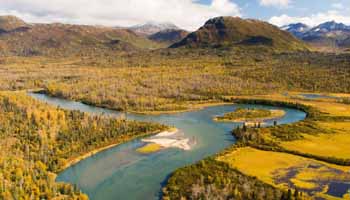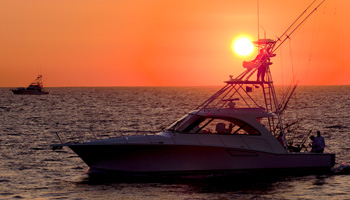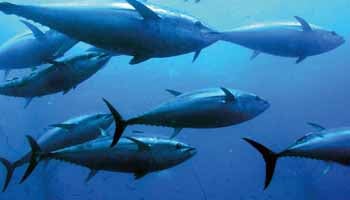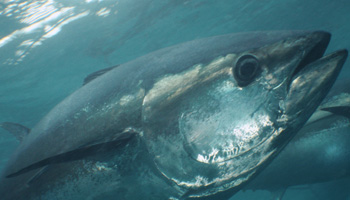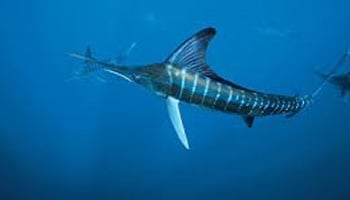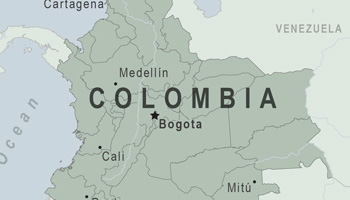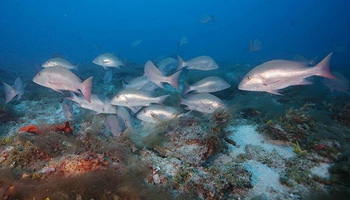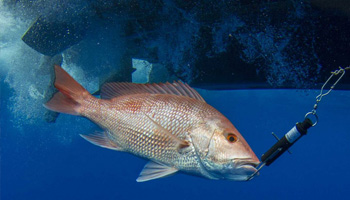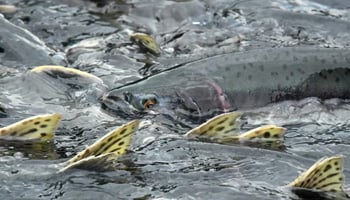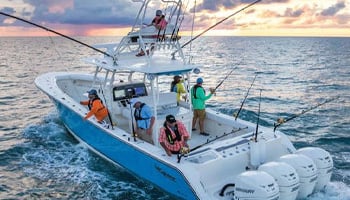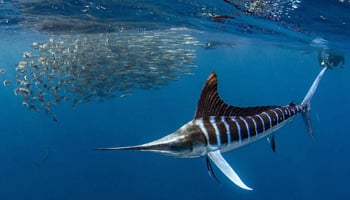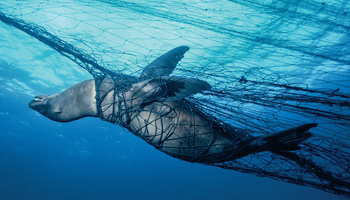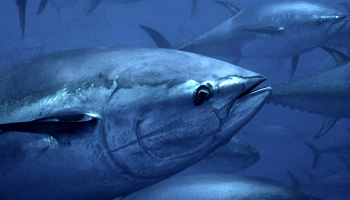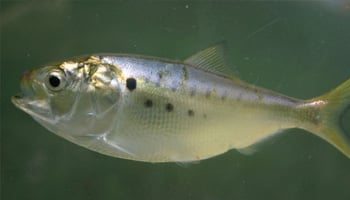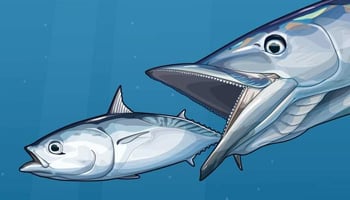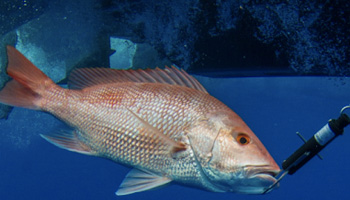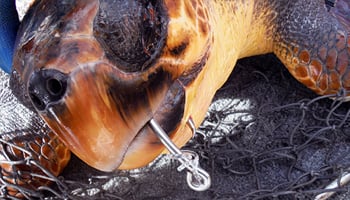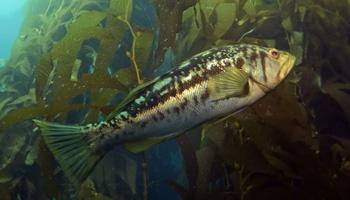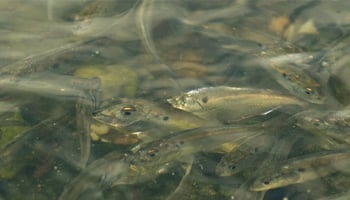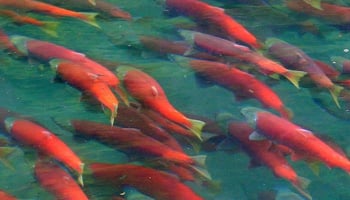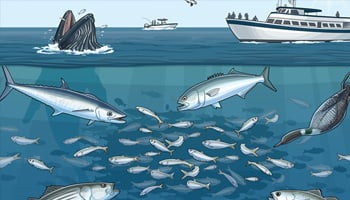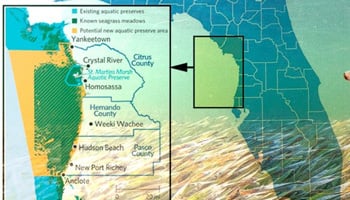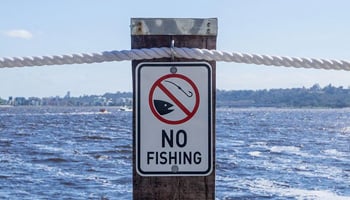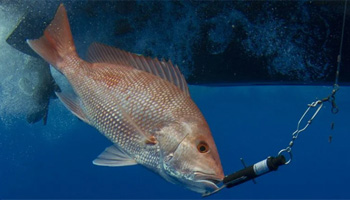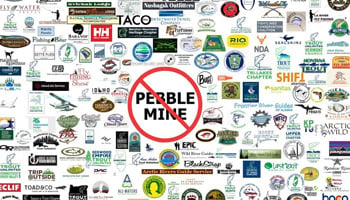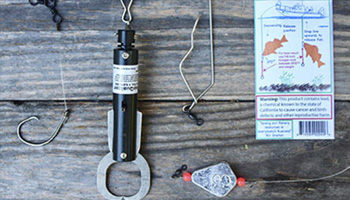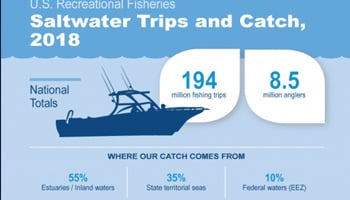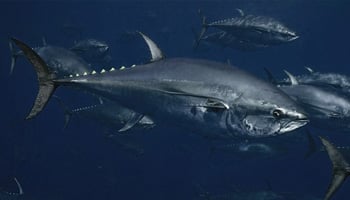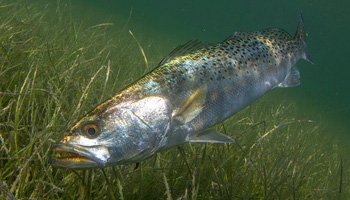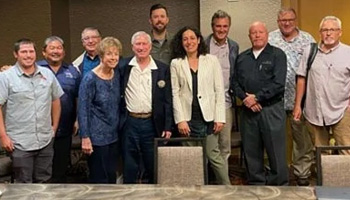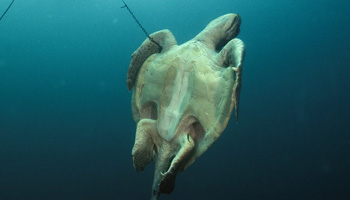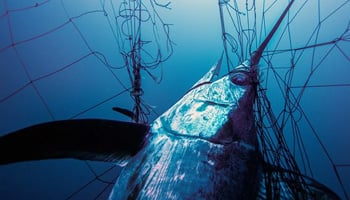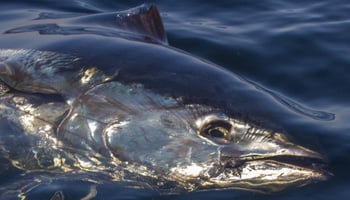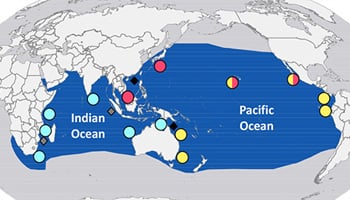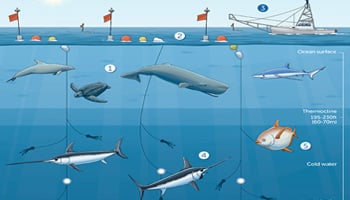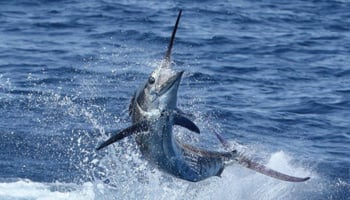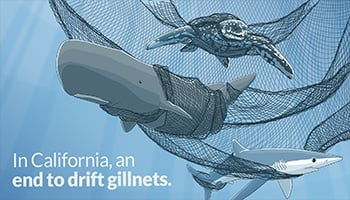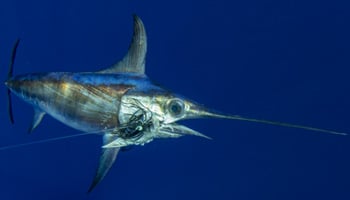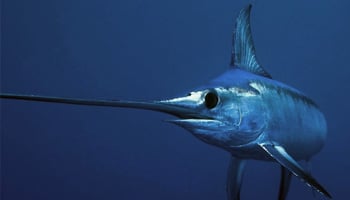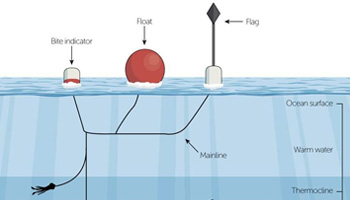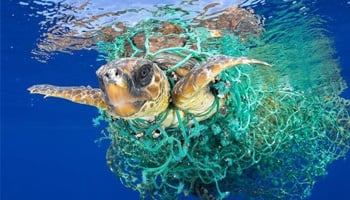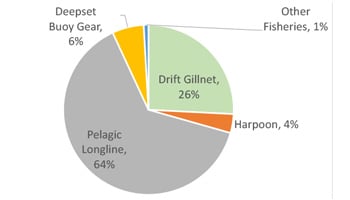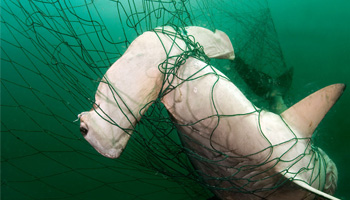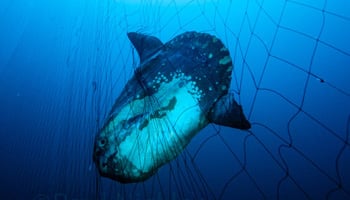Fisheries Policy
The world of modern fisheries management is a complex and oftentimes contentious environment. Many of our favorite recreational fisheries are imperiled due to habitat degradation and commercial overfishing. Sadly, recreational fishing interests often take a backseat to commercial fishing practices. Thus, it is vital that recreational anglers are represented during the fisheries management decision making process. Fisheries managers need to be shown that recreational fishing is a growing and vibrant entity of its own that has considerable participation and economic impact globally. This cannot be done without active participation in the fisheries management process.
From working to eliminate destructive fishing gear to advocating for sustainable fisheries management, the IGFA and its international network work ardently to ensure that recreational anglers are represented and the game fish we revere are sustainably managed.
March 17, 2025
As NOAA Fisheries proposes sweeping closures on bottom fishing for 55 species in the South Atlantic from December through February, the IGFA and our partners are submitting comments urging the Agency to drop this heavy-handed rule and instead focus on angler engagement and education to reduce dead discards for red snapper.
January 22, 2025
In January 2025, the IGFA joined a coalition of recreational fishing and fisheries conservation and science organizations to endorse the Supporting the Health of Aquatic systems through Research, Knowledge and Enhanced Dialogue (SHARKED) Act. This bill highlights the increasing challenge of shark depredation, which negatively impacts fishing experiences, risks the safety of sharks and humans, and threatens the sustainability of fish populations, especially in the southeastern U.S. We look forward to the passage of this bill to establish a task force for improved coordination and communication across the fisheries management community on shark depredation toward addressing shark depredation nationally and establishing foundational knowledge that can be used to improve future management, education, and research actions.
Expanding access to America’s public lands and waters
January 4, 2025
Supported by a broad coalition of outdoor-oriented organizations, including advocates for fishing, hunting, horseback riding, recreational boating, camping, and more, the Expanding Public Lands Outdoor Recreation Experiences (EXPLORE) Act was signed into law on January 4, 2025. The EXPLORE Act will modernize technology to improve visitor experiences, streamline the permitting process and reduce fees for small businesses that depend on public land access, and improve accessibility for military service members, veterans, individuals with disabilities, and kids. The IGFA joined over 300 outdoor organizations and businesses, conservation groups, and local, federal, and state officials to support this important legislation that will expand access to America’s public lands and waters.
IGFA Supports Long-Term Sustainability and Health of the Lower Mississippi River
September 30, 2024
The IGFA signed on to a multi-partner comment letter led by the Theodore Roosevelt Conservation Partnership. This letter was submitted for consideration as part of the Comprehensive Management Study in the Lower Mississippi River, a Congressionally directed study to evaluate alternatives for ensuring effective long-term management of the river from Cape Girardeau to the Gulf of Mexico. The comments urged the U.S. Army Corps of Engineers to prioritize projects, programs, and alternatives that:
- Enhance the long-term sustainability of the natural ecosystems of the Lower Mississippi River.
- Improve public access to these resources.
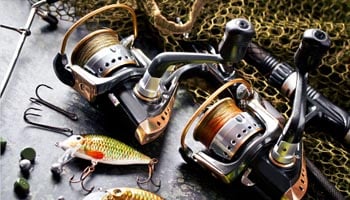
IGFA Commends Congressional Leadership for Addressing Federal Excise Tax Loopholes
September 20, 2024
The IGFA signed on to a letter sent to Representatives Jimmy Panetta and Blake Moore from sportsmen, professional societies, and conservation organizations. The letter commended their leadership in introducing legislation to address the issue of foreign manufacturers avoiding the federal excise tax (FET) on sportfishing and archery equipment through online marketplace facilitators. Closing this loophole would:
- End the unfair advantage that foreign manufacturers have over domestic competitors.
- Ensure they contribute their fair share to the Wildlife and Sportfish Restoration Programs, which are primarily funded by the FET, and increase industry revenue by an estimated $17 million annually.
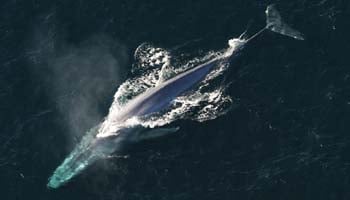
IGFA Supports Boater Education and Outreach Initiatives to Reduce Marine Mammal Interactions
September 16, 2024
The IGFA developed and sent two letters to the National Fish and Wildlife Foundation in support of proposals from the BoatU.S. Foundation and Conserve.IO to the National Fish and Wildlife Foundation’s Vessel Strike Avoidance Fund. These proposals sought funding for important education and outreach programs facilitated by both organizations to reduce vessel interactions with marine mammals, improving the safety of both wildlife and recreational boaters.
- BoatU.S. Foundation: Proposed a multi-pronged education and outreach campaign focused on North Atlantic right whales and potential vessel interactions. The initiative aimed to raise awareness among recreational boaters and promote the adoption of available technologies to prevent such interactions. You can read the BoatU.S. letter here.
- Conserve.IO: Proposed expanding the Whale Alert Feature Expansion and Outreach Initiative to strengthen the accessibility, availability, and reliability of the Whale Alert platform. This would significantly enhance its capacity to safeguard both recreational boaters and marine mammals. You can read the Conserve.IO letter here.
IGFA Advocated for Striped Marlin Conservation
March 27, 2024
IGFA signed on to a letter developed by Wild Oceans’ Theresa Labriola to be sent to the Acting Regional Administrator of NMFS Pacific Islands Regional Office regarding striped marlin catch and retention limits in the WCPFC. The letter requests compliance with requirements of MSA, recommending that NOAA Fisheries adopt a striped marlin catch limit of less than 409t consistent with the most current rebuilding analyses, a retention limit at least 20% below the catch limit to address the U.S. relative impact on the stock including bycatch and discard and to avoid excess fishing mortality, and complimentary conservation measures to reduce the catch, discard and mortality of striped marlin, protect vulnerable life histories, and improve recreational and small-boat opportunities. The letter also requests compliance with the current rebuilding plan, pointing out the proposed rule would actually increase US catch of an overfished stock
IGFA Supports Menhaden Research and Management
March 22, 2024
IGFA signed on to two appropriations funding requests, one to the House and the other to the Senate Committees. This request supported prioritized funding for fisheries data collections, surveys, and assessments through the National Marine Fisheries Service (NMFS) of the National Oceanic and Atmospheric Administration (NOAA) for Fiscal Year (FY) 2025. Signing organizations requested the Subcommittee appropriate $2.7 million to the Atlantic States Marine Fisheries Commission through the Fisheries Data, Collections, Surveys, and Assessments PPA to complete the research outlined in the VIMS “Atlantic Menhaden Research Planning” document
IGFA Support Larry Phillips for Pacific Fisheries Management Council Seat
January 12, 2024
The IGFA sent a letter to Washington Governor Jay Inslee endorsing Larry Phillips as the ideal candidate for Washington’s at-large seat on the Pacific Fisheries Management Council
IGFA Supports Menhaden Regulations
January 2, 2024
IGFA signed on to a letter addressed to the Chairman of Louisiana Wildlife and Fisheries Commission by a large number of the Gulf menhaden coalition representing the recreational fishing and boating community. The letter expressed our strong support for the Commission’s Notice of Intent (NOI) to amend rules to the menhaden fishery regarding buffer zones and spill reporting, and urge its passage into regulation
IGFA Supports Improved Gulf Menhaden Management
December 14, 2023
IGFA signed on to a letter addressed to the Chairman of Louisiana Wildlife and Fisheries Commission and sent by a large number of recreational fishing and boating organizations. The letter expressed strong support for the Commission’s Notice of Intent (NOI) to amend rules to the menhaden fishery regarding buffer zones and spill reporting, and urged its passage into regulation.
IGFA Supports Rigs-to-Reefs Program
December 14, 2023
IGFA signed on to a letter addressed to Congressman Graves and Congressman Veasey thanking them for their leadership with the Marine Fisheries Habitat Protection Act. Specifically, the bill requires an evaluation of the remaining oil and gas offshore structures for the presence of important reef organisms, and once found, allows for more time for the structures to be converted to a Rigs-to-Reefs program, provided the associated wells are safely plugged just as they would be if they were decommissioned on land. Furthermore, it encourages oil and gas companies to consider the Rigs-to-Reefs program as a decommissioning option by designating the area in the immediate vicinity of the platforms as reef planning areas with the goal of conserving important localized marine ecosystems. Essentially, the bill uses a science basis to facilitate the voluntary conversion of oil and gas platforms to permanent reef fish habitat.
Recreational Community Comments on North Atlantic Right Whale Vessel Speed Rule
December 11, 2023
IGFA signed on to a letter addressed to NOAA Assistant Administrator Janet Coit requesting NOAA Fisheries suspend further action on proposed changes to the North Atlantic right whale (NARW) vessel speed rule published July 29, 2022. The proposed rule is significantly flawed because the technical analysis makes assumptions known to be inaccurate, which may derive from NOAA Fisheries’ decision to proceed without input from impacted stakeholders. This also calls into question the extent to which the proposed rule would even provide NARWs with the protection needed. Undoubtedly, however, the proposed rule would cause deep, lasting economic harm up and down the East Coast and beyond as public access to the ocean is effectively eliminated for months at a time, making it critical that NOAA analyze the issues correctly and pursue technology solutions quickly.
Coalition Urges Mid-Atlantic Fishery Management Council to Adopt Guidance Document
December 7, 2023
IGFA signed on to a letter addressed to the Mid-Atlantic Fishery Management Council and developed by Wild Oceans and other groups involved in Northeast forage fish management. The letter expressed support for the updated “Guidance Document for Council Review of Exempted Fishing Permit Applications for Unmanaged Forage Omnibus Amendment (UFOA) Ecosystem Component Species”. The letter urged the Mid-Atlantic Fishery Management Council to adopt the Guidance at its December meeting with no further revisions.
Recreational Community Supports Amendments in H.R. 6093
December 4, 2023
IGFA signed on to a letter alongside a large group of fishing non-profits and organizations addressed to House Committee on Science, Space, and Technology expressing our strong support for the amendments included in H.R. 6093, the Weather Act Reauthorization of 2023, to reauthorize the Harmful Algal Bloom and Hypoxia Research and Control Act (HABHRCA). The Harmful Algal Bloom and Hypoxia Research and Control Act is critically important legislation that has advanced the scientific understanding of harmful algal blooms (HABs) and the ability to detect, monitor, assess, and predict HABs and hypoxia events. As recently witnessed in South Florida, the Gulf of Mexico and the San Francisco Bay, HABs have a severe impact on fish populations, fisheries habitats and even human health. Not only are entire ecosystems impacted, but the economic losses extend to local and national businesses that depend on access to healthy aquatic systems.
Community Supports Recreational Fishing Committee within New England Fishery Management Council
November 29, 2023
IGFA signed on to a letter drafted by the Center for Sportfishing Policy, among other fishing non-profits, to express our support for the creation of a Recreational Committee within the New England Fishery Management Council (NEFMC). The establishment of such a committee is crucial for addressing a broader range of recreational concerns specific to our sector and would foster a more inclusive and effective pathway for the recreational fishing community to engage in the fisheries management process.
IGFA Supports Management Changes to California Gillnet Fisheries
October 19, 2023
IGFA signed on to a letter drafted by a group of NGOs to the California Dept. of Fish and Wildlife commending them for developing a suite of management measures to reduce bycatch and bycatch mortality associated with set gillnet fishing in CA waters. The letter expressed our support of the suite of management changes and data collection improvements the CA Fish and Game Commission directed CDFW to bring forward and listed out the measures we thought could be readily adopted that would lead to significant improvements in the conservation of CA species targeted or caught as bycatch in gillnet fisheries.
Recreational Community Provides Comments on NOAA’s Amendment 15
October 2, 2023
IGFA assisted in the development of a letter signed by a coalition of recreational fishing groups. The letter, addressed to NOAA HMS Division, requested that all action on commercial longline spatial management areas be removed from Draft Amendment 15 and deliberated under a separate amendment to the HMS Fishery Management Plan. Our justification for this request and preferred approach is supported by the following comments. As delineated in Draft Amendment 15, the proposed amendment comprises two overarching components:1) Examination of the existing commercial longline spatial management areas. 2) Transitioning the financial responsibility for electronic monitoring (EM) in the pelagic longline (PLL) fishery from NOAA to the industry. The diverse nature of the two issues and their differing timeframes warrant separate deliberative processes for each component.
$82 Million in Inflation Reduction Act Funding for North Atlantic Right Whales
September 27, 2023
A letter was sent to Secretary of Commerce Gina Raimondo outlining our group’s request for the funds allocated to North Atlantic Right Whales.
IGFA Outlines the Importance of Sailfish Recreational Fishing to the Economy of Costa Rica
September 21, 2023
A letter was sent to the Government of Costa Rica from IGFA where we outlined the importance of sailfish and their high recreational catch rates to the economy of Costa Rica. The letter further supported the declaration of sailfish as a national symbol in Costa Rica that would provide increased protection while allowing the recreational fleet to target the species
Coalition Asks NOAA Fisheries for Comprehensive Solution to Recover the Rice’s Whale Population
June 21, 2023
A letter was sent to NOAA Assistant Administrator Janet Coit from a large number of fishing and boating organizations regarding the petition to establish speed restrictions to protect rice’s whales in the Gulf of Mexico. In lieu of the petition, the letter asks NOAA Fisheries to work with all stakeholders in the Gulf of Mexico on a comprehensive solution to recover Rice’s whales. The letter provides the group’s response in listed format to NOAA Fisheries’ request for comments on the Rice’s whale petition for rulemaking in the Gulf of Mexico.
IGFA Supports Maintaining Recreational Access to National Marine Sanctuaries
June 2, 2023
A letter was sent to John Armor, Director of NOAA’s Office of National Marine Sanctuaries on behalf of the recreational fishing and boating community asking NOAA to ensure recreational fishing and boating access is protected within our nation’s marine sanctuary system including the proposed Pacific Remote Islands National Marine Sanctuary.
IGFA Requests Conservation and Management Measures for Western and Central North Pacific Striped Marlin
April 26, 2023
A letter was sent to NOAA’s Deputy Assistant Secretary for International Fisheries and the Regional Administrator for NOAA’s PIRO office from numerous conservation and fishing groups. The letter asked NOAA to prioritize development and adoption of a conservation and management measure for Western and Central North Pacific Ocean (WCNPO) striped marlin this year. The letter calls for the following: expanding the use of circle hooks, modifying longline gear to remove hooks adjacent to floats or increase hook depth, requiring release of all live striped marlin or non-retention of all striped marlin, establishing a minimum size limit, protecting striped marlin spawning and nursery grounds, and mandatory reporting of live and dead discarded striped marlin.
IGFA Signs Letter Supporting Exempted Fishery Permit Review Process Related to Unmanaged Forage Fish
April 26, 2023
A letter was sent to Dr. Chris Moore of the Mid-Atlantic Fishery Management Council in support of 2023 Implementation Plan to “Develop a policy and/or process for reviewing Exempted Fishery Permit (EFP) applications for new or expanding fisheries as it relates to the unmanaged forage amendment.”
IGFA Supports LAKES Act
April 24, 2023
A letter was sent by a coalition of fishing and boating organizations saying thank you for leadership in introducing the Lake Access Keeping Economies Strong (LAKES Act)– bipartisan legislation to better equip the U.S. Army Corps of Engineers (Corps) to support historic demand for recreation while growing the economic footprint of the outdoor industry in communities across the country. Through extending recreation fee retention authority to the Corps and making needed reforms to the Corps’ existing joint management authority the LAKES Act will reinvest recreation fees back into the maintenance and repair of recreation facilities and infrastructure and provide the Corps with an essential tool to facilitate public private partnerships in the management of recreation sites – delivering historic wins for public recreation access nation-wide.
Coalition Letter Sent to US Army Corps of Engineers on Lake Okeechobee Watershed Restoration Plan
April 3, 2023
A letter was sent to US Army Corps of Engineers supporting the LOWRP and the State’s Section 2023 initiative. The letter urged the USACE to: 1. Expeditiously complete the review of the SFWMD’s ASR Science Plan, utilizing the significant state investment that has already been made, and submit a Final Chief’s Report containing the LOWRP ASR wells and wetland features to Congress for approval in WRDA 2024. 2. Immediately execute a partnership agreement with the SFWMD to plan an above ground storage feature to work in concert with the LOWRP. 3. Ensure the LOWRP and the above-ground storage feature are delivered to Congress in a timely manner for inclusion in WRDA 2024
Coalition Letter Outlines Vital Everglades Restoration
March 31, 2023
A letter was sent from a group of recreational fishing and boating community members, conservation organizations, and maritime and angling businesses. The letter expressed appreciation for the Subcommittee on Energy and Water Development, and Related Agencies and the Subcommittee on Interior, Environment, and Related Agencies’ long-time support for Everglades restoration. An outline was provided that suggests efforts to advance vital Everglades and other critical watershed restoration and improvement projects in the FY24 appropriations bills.
IGFA Supports Rigs to Reefs Program
March 21, 2023
A letter was sent to Senate and House Interior Appropriations Chairs and Ranking Members from a group of NGOs stressing the importance of the Gulf of Mexico’s outer continental shelf as fish habitat due to the presence of energy infrastructure. The letter outlines that less than 25% of original energy production structures remain and their presence is vital to many species of important recreational and commercial fisheries. The letter strongly supports the Rigs to Reefs Program and suggests the Appropriations Report language provide the maximum opportunity to safely repurpose platforms through the program.
IGFA Supports Authorization of Deep-set Buoy Gear off US West Coast
March 9, 2023
A Letter was sent to NMFS Assistant Regional Administrator Ryan Wulff on behalf of Wild Oceans, Turtle Island Restoration Network, The Pew Charitable Trusts, The International Game Fish Association, Oceana, and American Sportfishing Association. The letter supports the proposed rule for Amendment 6 to the Fishery Management Plan for U.S. West Coast Fisheries for Highly Migratory Species which authorizes deep-set buoy gear as a legal gear type for catching highly migratory species off the U.S. West Coast.
IGFA Requests Science-based Halibut Management in California
March 9, 2023
A letter from a large group of organizations was sent to CDFW Director Bonham and members of the California Fish and Game Commission requesting the CDFW develop a comprehensive, science-based plan for managing California’s halibut fishery. The letter suggests CDFW limit bycatch of halibut by addressing gillnets and bottom trawls. It asks for protection for nursery habitats and safeguarding of prey resources. Finally, the letter suggests CDFW use the best available information about halibut abundance to determine and implement catch limits that would prevent overfishing.
IGFA Applauds EPA for Safeguarding Bristol Bay
February 13, 2023
A large coalition of fishing and hunting groups sent a letter to EPA Administrator Regan applauding the EPA’s leadership in issuing a final determination for Bristol Bay Alaska under Section 404(c) of the Clean Water Act. This safeguards the region against hard rock mining into the future.
Coalition Supports Transition from Drift Gillnets to Deep Set Buy Gear in California Swordfish Fishery
November 11, 2022
Letter sent to Chair of Pacific Fishery Management Council by coalition of fishing and conservation organizations in support of the transition of the California swordfish fishery from drift gillnets to sustainable gear that imposes minimal bycatch or negative impacts on the open ocean ecosystem. The letter expressed support for the Council’s continued effort to develop hard caps on the drift gillnet fishery. Hard caps specify the Council’s policy of what level of protected species bycatch is unacceptable in the DGN fishery. The letter urged the Council to take final action in November to adopt drift gillnet hard caps and take a strong conservation posture associated with ALTERNATIVE 2 - Rolling Two-Year Hard Cap.
Letter Sent to Senate and House supporting REEF Act
October 31, 2022
A supplemental letter was submitted to NOAA from the coalition of fishing organizations proposing questions on the NOAA Technical Memorandum NMFS-SEFSC-757 and Draft Regulatory Impact Review/Initial Regulatory Flexibility Analysis.
Letter Sent to Senate and House supporting REEF Act
October 28, 2022
Letter signed by fishing and boating organizations to Chairs and Ranking Members of the Senate and House Armed Services Committees requesting support for including the Reusing Equipment for Environmental Fortification (REEF) Act (S. 2946 / H.R. 5306) in the National Defense Authorization Act for Fiscal Year 2023. The REEF Act will help provide opportunities for retired naval vessels to be considered for artificial reefs, which would boost the marine environment and provide recreational fishing opportunities.
IGFA Submits Comments on Proposed Speed Restrictions to Protect Right Whales
October 26, 2022
Following up the coalition letter and public comment sent on October 3rd and 4th, The IGFA submitted its own letter to NOAA Administrator Janet Coit and submitted a public comment expressing concern over NOAA’s proposed speed restrictions to protect Right Whales along the eastern seaboard of the US. The letter reiterated much of what was discussed in previous letters and comments and included some more scientific language based on Bruce’s study of the stock assessment for Right Whales performed by NOAA scientists.
Legislative Priorities for Sportfishing Community Outlined for Senate and House Leaders
October 18, 2022
Letter sent from coalition of conservation and fishing organizations to Florida Keys National Marine Sanctuary Superintendent Sarah Fangman offering our visions for future management of the sanctuary and priorities for the restoration blueprint draft rule. The letter stressed the importance of water quality, education, and enforcement to meeting the goals of the restoration blueprint and improving the FL Keys ecosystem. acted by proposed speed restrictions as well as the economics and miscalculations of vessel draft depths.
Legislative Priorities for Sportfishing Community Outlined for Senate and House Leaders
October 3, 2022
A coalition of representatives from the boating and fishing communities, including IGFA, sent an extensive 21-page letter to NOAA Administrator Janet Coit expressing concern over proposed Right Whale speed restrictions and the risk of recreational anglers striking whales. The letter also detailed the incorrect estimation of the number of vessels impacted by proposed speed restrictions as well as the economics and miscalculations of vessel draft depths.
Legislative Priorities for Sportfishing Community Outlined for Senate and House Leaders
September 7, 2022
A large group of fishing, boating, and conservation organizations sent a letter to Senate and House leaders outlining the sportfishing community’s priorities and support in this Congress. The supported bills include:
- America’s Outdoor Recreation Act of 2022 (S.3266)
- Natural Resources Provisions Not Included in the CHIPS and Science Act of 2022 (H.R. 4346)
- Recovering America’s Wildlife Act (H.R. 2773 & S. 2372)
- Reinvesting in America’s Shoreline Economies & Ecosystems Act (S.2130)
- Water Resources Development Act (H.R. 7776)
Recommendations Provided to NOAA on Proposed Hudson Canyon Sanctuary
August 3, 2022
A coalition of fishing and boating stakeholders provided public comment to NOAA Office of National Marine Sanctuaries through a letter that highlights the importance and lack of negative impacts of recreational fishing at Hudson Canyon. Recommendations included the maintenance of recreational fishing opportunities, spatial extent of the sanctuary, designated advisory council seats to the recreational community, jurisdictions, and request for a management plan.
Request for House to Continue and Improve Rigs to Reefs Program
July 6, 2022
A coalition of boating and angling organizations, including IGFA, sent a letter to Senate Interior Appropriations members in support of the Rigs to Reefs Program and requesting they improve the House’s language to include a pause of current decommissioning for rigs that pose no risk to navigation or the environment.
IGFA Urges PFMC to Transition Away from Drift Gillnets
June 9, 2022
A letter was sent from Wild Oceans, IGFA, ASA, and CCA-California to the Chair of the Pacific Fishery Management Council Marc Gorelnik expressing support for the transition of the California swordfish fishery away from drift gillnets to more sustainable gear. The letter also supported the Council’s efforts to develop hard caps on the drift gillnet fishery.
IGFA Supports Louisiana HB 1033
April 12, 2022
A letter was sent to Louisiana’s House Natural Resources and Environment Committee to express IGFA’s support for HB 1033 that would implement an annual catch limit for menhaden and improve fisheries data collection to allow for a movement toward ecosystem-based management practices in the Gulf of Mexico.
IGFA Urges House and Senate to Explore Tax Slippage
March 28, 2022
The IGFA signed on to a letter sent to Senate and House members urging them to explore excise tax slippage and fix issues related to foreign fishing equipment tax slippage to ensure federal excise taxes collected are fair and equitable to American manufacturers under the wildlife and sportfish restoration programs.
Recommendations Provided to Department of the Interior on America the Beautiful/30x30
March 7, 2022
A letter was sent from a very large coalition of angling, hunting, boating, and conservation organizations known as Hunt Fish to the Secretary of the Department of Interior providing recommendations and encouraging the Administration to continue to work closely with stakeholders, including the sporting-conservation community, in support of enhanced conservation delivery in the United States relative to the America the Beautiful Initiative aka 30x30.
The IGFA Urges Senate to Pass the Driftnet Modernization and Bycatch Reduction Act
March 3, 2022
The IGFA signed on to a letter that was sent to Senate leaders urging the Senate to pass the Driftnet Modernization and Bycatch Reduction Act as included (Title II of Division H) in the House-passed America COMPETES Act of 2022
IGFA Supports Conservative Dolphinfish Management
February 21, 2022
The IGFA submitted a letter to the NMFS Southeastern Regional office as public comment objecting to Amendment 10 for dolphin and wahoo as written. The letter reiterated support for reducing recreational limits to 30 dolphin per vessel, creating a 2,000lb commercial trip limit, maintaining a 10 dolphin per angler bag limit, and implementing a 20” minimum size limit for regions where there is not already a size limit in place.
IGFA Thanks Biden for Everglades Restoration Funding
February 4, 2022
A letter signed by IGFA and numerous fishing, boating and conservation organizations was sent to President Biden following passage of the Infrastructure Investment and Jobs Act thanking him for critical financial investment and the symbolic action that demonstrated the administration’s commitment to restoring America’s Everglades.
IGFA Supports Additional Regulations for Dolphinfish
January 4, 2022
A letter signed by many angling and boating organizations, as well as a petition signed by over 5,000 anglers, was sent to NOAA Administrator Janet Coit on behalf of a large coalition of stakeholders objecting Amendment 10 for dolphin and wahoo. The letter urged NOAA to do more to protect dolphinfish including reducing vessel limits, creating commercial trip limits, expanding minimum size regulations where they do not exist, and maintaining per person bag limits.
Coalition Requests Everglades Restoration Funding
December 23, 2021
A letter was sent from members of the fishing, boating, and outdoor industry, including IGFA, to President Biden in support of bi-partisan congressional letters requesting that the administration allocate at least $1.5 billion towards turnkey Everglades restoration projects (i.e., the South Florida Ecosystem Restoration program) from funding made available to the U.S. Army Corps of Engineers (USACE) through the bipartisan Infrastructure Investment and Jobs Act (IIJA).
IGFA Thanks Reps. Dingell and Mast for Forage Fish Conservation Act
November 16, 2021
The IGFA signed on to a letter sent to Representatives Dingell and Mast on behalf of the nation’s recreational fishing and boating community thanking them for their leadership in support of marine conservation through the Forage Fish Conservation Act
Recommendations Sent to Department Secretaries on America the Beautiful Initiative
October 13, 2021
The IGFA signed on to a letter, along with a large group of sporting and conservation organizations, sent to Secretaries Haaland, Raimondo, and Vilsack and Chair Mallory expressing optimism for the administrations interest in conservation objectives and providing recommendations on how to approach achieving priorities for the America the Beautiful Initiative.
IGFA Supports the REEF Act
October 12, 2021
IGFA signed on to a letter sent to Senators Rubio and Wicker, and Representatives Salazar and Case on behalf of the recreational fishing and boating community thanking them for their leadership on the Reusing Equipment for Environmental Fortification (REEF) Act. This Act will provide opportunities for retired naval vessels to be considered for artificial reefs, boosting recreational opportunities and increasing marine habitat.
Vessel Speed Restrictions Will Cripple Coastal Communities, Fail to Protect Right Whales
October 4, 2022
The leading organizations representing recreational fishing and boating in the United States urged the National Marine Fisheries Service (NMFS) to pause its proposed North Atlantic Right Whale Vessel Strike Reduction Rule, citing numerous significant flaws with the proposal. The proposed rule would broaden the current 10-knot (11.5 mph) speed restriction to include vessels 35 feet and larger (down from 65 feet); expand the go-slow zones from discrete calving areas to essentially the whole Atlantic Coast out as far as 90 miles, and extend these zone restrictions as long as seven months a year.
IGFA Supports Letter from Members of Congress to Invest in Everglades Restoration
August 24, 2021
The IGFA signed on to a letter sent to Speaker Pelosi, Leader Schumer, Chairman DeFazio, and Chairman Carper in support of a communication sent from 10 members of Congress in Florida requesting inclusion in the American Jobs Plan legislation of a necessary $5 billion Federal investment to complete Everglades restoration in accordance with the U.S. Army Corps of Engineers Integrated Delivery Schedule.
IGFA Calling on EPA to Stop Pebble Mine
August 12, 2021
The IGFA along with a large group on angling, hunting, and conservation organizations sent a letter to EPA Administrator Michael Regan requesting the EPA honor President Biden’s commitment to stop Pebble Mine in Bristol Bay, Alaska by taking action under Section 404(c) of the Clean Water Act.
Reps. Huffman and Case Introduce Bill to Reauthorize Nation’s Primary Fishing Law
July 27, 2021
Congressmen Jared Huffman (D-Calif.) and Ed Case (D-Hawaii) introduced the Sustaining America’s Fisheries for the Future Act to reauthorize the Magnuson-Stevens Act (MSA), America’s primary law governing marine fisheries. MSA has not been reauthorized since 2006. The recreational fishing community commends Reps. Huffman and Case for their thorough approach to drafting the legislation, which included stakeholder roundtables on each coast and the invitation to stakeholders to provide input on the discussion draft of the bill.
Reconsider Gulf of Mexico Gear Restricted Areas
July 15, 2021
A letter signed by a large coalition of angling, scientific, and conservation groups was sent to the NOAA/NMFS Highly Migratory Species Division requesting reconsideration of the conversion of the Spring Gulf of Mexico Gear
Restricted Areas (GRAs) to a Monitoring Area. The GRA’s were reopened in April 2020 to overwhelming opposition due to the harmful consequences to Atlantic bluefin that spawn in these areas seasonally.
Addressing the Depleted Western Atlantic Bluefin Tuna Stock
June, 2021
In 2014, the IGFA was involved in the development of Amendment 7 to the Consolidated Atlantic HMS Fishery Management Plan to address the depleted western Atlantic bluefin tuna stock. This amendment implemented a variety of actions to limit overfishing and conserve the bluefin stock including designating two new Gear Restricted Areas (GRAs) that prohibited longlining during the spring in the Gulf of Mexico when peak bluefin spawning occurs. In April 2020, NOAA Fisheries announced a rule that converted these GRAs into monitoring areas, effectively reopening this critical location to pelagic longlining once again. The GRAs have been highly successful at reducing mortality of spawning bluefin and removing them puts the depleted western Atlantic bluefin stock at unnecessary risk. A coalition including IGFA and a large number of scientific, environmental, and industry organizations recently submitted a letter to NOAA expressing opposition to reopening the GRAs to pelagic longlining.
Western and Northern Pacific Ocean Striped Marlin
June, 2021
The IGFA and a coalition of stakeholder organizations sent a letter to NOAA Fisheries to express support for the United States’ continued commitment to negotiating strong international conservation measures for Western and Central North Pacific Ocean (WCNPO) striped marlin. These measures are necessary to replenish the spawning stock and restore opportunities for small-boat and recreational fishers in Hawaii and the eastern Pacific.
IGFA Helps Establish First Recreational Angling Regulations in Colombia
May, 2021
Several IGFA Representatives from Colombia and members of the IGFA South America Regional Council, Pedro Rodríguez, Carlos Heinsohn, and Alejandro Linares, along with other important recreational fishing industry players in the country, recently presented a proposal for the establishment of recreational angling regulations to the National Aquaculture and Fisheries Authority (AUNAP).
Leading Recreational Fishing Organizations Unite to Protect a Critical Spawning Aggregation
February, 2021
Commissioners of the Florida Fish & Wildlife Conservation Commission (FWC) approved the final rule to implement a seasonal fishing closure in a one square-mile section of the Western Dry Rocks off the Florida Keys from April 1 to July 31. This important decision will protect the peak spawning seasons of some of the most important recreational and commercial species in Florida including permit, and multiple snapper and grouper species.
A Bipartisan Win for Gulf Reef Fish Conservation
January, 2021
A step forward for reef fish conservation in the Gulf of Mexico was made as H.R. 5126, the Direct Enhancement of Snapper Conservation and the Economy through Novel Devices Act (DESCEND) was signed into law. This law will now require the use of descending devices or venting tools while fishing for reef fish in the federal waters of the Gulf of Mexico and includes both recreational and commercial hook and line fisheries.
Bristol Bay Pebble Mine Rejected
December, 2020
On November 25th, the Trump Administration rejected the permit for the proposed Pebble Mine in Bristol Bay, Alaska. The Pebble Mine, a proposed massive copper and gold mine, has been a hot topic in Alaska and federally for many years with the EPA prepared to veto the project back in 2014 before it was reversed four years later.(click title to read more)
Outlining Several Good Fisheries Provisions
November 30, 2020
A coalition, including IGFA, sent a letter to House and Senate appropriators outlining several good fisheries provisions that were included in the FY21 Senate CJS bill report. (click title to read more)
Expressing Support for a Rebuilding Plan for Western and Central North Pacific Ocean (WCNPO) Striped Marlin
November 24, 2020
The IGFA, and a coalition of stakeholders, sent a letter to NOAA Fisheries expressing support for a rebuilding plan for Western and Central North Pacific Ocean (WCNPO) striped marlin. (click title to read more)
S. 906, the Driftnet Modernization and Bycatch Reduction Act
November 24, 2020
A letter was sent from a coalition of stakeholders, including IGFA, requesting the U.S. lead and support efforts to lower the 2021 Western Atlantic bluefin tuna catch limit to 1785 tons per year. Available science suggests this decrease in catch would end overfishing with an approximately 60% probability. (click title to read more)
Support Efforts to Lower the 2021 Western Atlantic Bluefin Tuna Catch Limit
October 21, 2020
A letter was sent from a coalition of stakeholders, including IGFA, requesting the U.S. lead and support efforts to lower the 2021 Western Atlantic bluefin tuna catch limit to 1785 tons per year. Available science suggests this decrease in catch would end overfishing with an approximately 60% probability. (click title to read more)
Urging Atlantic States Marine Fisheries Commission To Vote for a Limit to the Total Allowable Catch in 2021-2022 of Menhaden
October 16, 2020
The IGFA, along with a coalition of stakeholders, sent a letter to the Florida delegation of the Atlantic States Marine Fisheries Commission urging them to vote for a limit to the total allowable catch in 2021-2022 of menhaden. In August 2020, the commission voted to adopt ecological reference points for Atlantic menhaden and the letter urges the commission to implement the newly developed system by setting catch limits. (click title to read more)
Add Bullet Mackerel (Auxis rochei) and Frigate Mackerel (Auxis thazard) to the Unmanaged Forage Omnibus Amendment
October 2, 2020
IGFA and a coalition of forage fish stakeholders sent a letter to the Mid-Atlantic Fishery Management Council urging them to advance their commitment to forage fish by pursuing a framework action to add bullet mackerel (Auxis rochei) and frigate mackerel (Auxis thazard) to the Unmanaged Forage Omnibus Amendment in the 2021 Implementation Plan. (click title to read more)
H.R. 5126, Direct Enhancement of Snapper Conservation and the Economy through Novel Devices Act of 2020
September 29, 2020
IGFA and a coalition of fishing and boating organizations sent a letter to House members urging the passing of H.R. 5126, Direct Enhancement of Snapper Conservation and the Economy through Novel Devices Act of 2020. The DESCEND Act would require reef fish anglers in the Gulf of Mexico to possess devices that aid fish in overcoming the effects of barotrauma and would be a major step in the right direction to improving discard mortality of red snapper and other reef fish. (click title to read more)
No Action on the Exempted Fishing Permit (EFP) to Fish with Longline Gear in the West Coast Exclusive Economic Zone (EEZ)
September 9, 2020
The IGFA, along with Wild Oceans, American Sportfishing Association, and the Coastal Conservation Association of California sent a letter to the NOAA Fisheries requesting support for No Action on an exempted fishing permit to fish with longline gear in the west coast exclusive economic zone. The letter further urges NOAA and NMFS to test, develop, and authorize new alternatives to high bycatch fisheries such as deep-set buoy gear which is a more sustainable alternative.(click title to read more)
30 X 30 Global Conservation Initiative
September, 2020
Over the past several months, the global conservation initiative known as 30 by 30 has made many headlines. This initiative, which seeks to protect 30% of the planet (land and ocean) by 2030, was developed by the United Nations Convention on Biological Diversity (CBD) in an effort to conserve biodiversity and healthy ecosystems. (click title to read more)
Great News for Atlantic Menhaden
August 5, 2020
Great news for menhaden, arguably one of the world’s most important species of forage fish! On August 5th, the Atlantic States Marine Fisheries Commission (ASMFC) voted unanimously to implement Ecological Reference Points (ERPs) for Atlantic menhaden. (click title to read more)
Pebble Mine and the Fate of the World's Largest Salmon Runs
July, 2020
The pristine rivers, wetlands and lakes that flow into Bristol Bay, Alaska produce the largest wild salmon runs on earth. Each year up to 60 million salmon return, including half of the world’s sockeye salmon and the largest remaining Chinook salmon runs known. (click title to read more)
Atlantic States Marine Fisheries Commission Requesting Implementation of Ecological Reference Points for Atlantic Menhaden
July 16, 2020
A coalition of more than 80 organizations and businesses, including IGFA, sent a letter to Atlantic States Marine Fisheries Commission requesting implementation of ecological reference points for Atlantic menhaden. The letter points out the critical role menhaden play as forage fish for a variety of our beloved game fish and the importance of well managed forage fish species for coastal communities.. (click title to read more)
Florida Governor Signs Bill Designating Nature Coast Aquatic Preserve
June 29, 2020
On June 29th, Florida Governor Ron DeSantis signed legislation (HB 1061), creating the Nature Coast Aquatic Preserve (AP) in Citrus, Hernando, and Pasco counties following an outpouring of support from local businesses, county commissioners, conservation groups, and recreational and marine industry organizations. (click title to read more)
Say NO to AB 3030!
July, 2020
The International Game Fishing Association requests that you express concern over recent legislature in the State of California known as the AB 3030 bill. This bill seeks to protect 30% of California’s state waters and lands, with the overall goal of protecting 30% of the entire country’s oceans by the year 2030 . (click title to read more)
Recreational Fishing Community Applauds South Atlantic Descending Device Requirement Effective July 15
June, 2020
NOAA Fisheries issued the final rule requiring descending devices to be rigged and ready for use onboard all vessels fishing for or possessing snapper-grouper species in South Atlantic federal waters. The rule will go into effect on July 15, 2020, for all commercial, for-hire and private recreational vessels. (click title to read more)
Tell Army Corps of Engineers to Deny the Clean Water Act 404 Permit for the Proposed Pebble Mine in Bristol Bay, Alaska
May 12, 2020
A coalition, including IGFA, representing hundreds of thousands of businesses, anglers, hunters, and outdoor enthusiasts sent a letter to President Trump urging him to direct the Army Corps of Engineers to deny the Clean Water Act 404 permit for the proposed Pebble mine in Bristol Bay, Alaska. If built, the mine would immediately jeopardize thousands of American jobs, hundreds of businesses, and put the fishing and hunting paradise that is Bristol Bay at great risk. . (click title to read more)
Support of Amendment 29 to the Snapper Grouper Fishery of the South Atlantic Fishery Region
April 27, 2020
A coalition of angling, boating, and conservation organizations, including IGFA, sent a letter to the Southeast Regional Office of NMFS in support of Amendment 29 to the Snapper Grouper Fishery of the South Atlantic Fishery Region (NOAA-NMFS-2020-0008). This Amendment would modify gear requirements to promote best fishing practices through a requirement to possess and use descending devices in fish that show signs of barotrauma. (click title to read more)
Fisheries of the United Stated, 2018 Report
April, 2020
Each fall, NOAA Fisheries publishes the Fisheries of the United States Report for the previous year and has been doing so for over 100 years. The report provides a snapshot of statistics on recreational and commercial fisheries, landings and value throughout the United States. (click title to read more)
New Rule Puts Spawning Bluefin Tuna at Risk
March, 2020
Seven years ago, the IGFA, working alongside the American Bluefin Tuna Association and the Pew Charitable Trusts, advocated for time/area closures that would protect spawning western Atlantic bluefin tuna from longlining in the Gulf of Mexico. (click title to read more)
Save our Seagrass
February, 2020
The IGFA has spearheaded a coalition of leading recreational angling and manufacturing organizations including the National Marine Manufacturers Association, the American Sport Fishing Association, Florida Coastal Conservation Association, Captains for Clean Water, Wild Oceans, the Angler Action Foundation, Chittum Skiffs and Maverick Boat Group to support legislation that would create a new Florida Aquatic Preserve. (click title to read more)
The Pacific Fishery Management Council Votes to Not Consider a New West Coast Longline Fishery
December, 2019
Thanks to a tremendous show of support by the recreational fishing community, the Pacific Fishery Management Council (PFMC) voted not to proceed with permitting a longline fishery outside the U.S. Exclusive Economic Zone. (click title to read more)
New Conservation Measures for Atlantic Marlin
December, 2019
At its recent annual meeting held in November, the International Commission for the Conservation of Atlantic Tunas (ICCAT) adopted measures aimed at rebuilding blue and white marlin stocks. (click title to read more)
Say NO to Developing a Longline Fishery on the United States West Coast
November, 2019
We’ve seen some major wins for pelagic fisheries operating out of the West Coast of the United States over the last year. First, was a California State bill that was signed last year that will ban the use of drift gillnets in California waters by 2023. (click title to read more)
Deep-set Buoy Gear Improves Commercial Harvesting
October, 2019
During its September meeting, the Pacific Fishery Management Council (PFMC) unanimously passed a motion to authorize deep-set buoy gear as a new way to commercially harvest swordfish. (click title to read more)
Tell NOAA Not to Reserve Conservation Measures for Atlantic Bluefin
September, 2019
Western Atlantic bluefin tuna populations have been severely depleted since the 1960s. The species can live up to 35 years, doesn’t reach sexual maturity until age 10, reproduces in discrete spawning locations and fetches exceptionally high market prices—all of which make it very susceptible to commercial overexploitation. (click title to read more)
New Research Sheds Light on Black, Striped and White Marlin Population Structure
April, 2019
Understanding billfish population structure is critical for effective fisheries management. Management plans that focus on distinct populations may be more effective than plans predicated on a single species stock. However, until recently, limited information existed on the number of and geographic size of populations for several species of billfish. (click title to read more)
The Many Moving Parts of Banning Gillnets
February, 2019
As many IGFA members know, for the last four years the IGFA has been working with a number of like-minded recreational and environmental organizations to phase out destructive drift gillnets in the United States west coast swordfish fishery and replace them with sustainable deep-set buoy gear. (click title to read more)
The Caribbean Billfish Management Plan
February, 2019
The recently published Caribbean Billfish Management and Conservation Plan is the product of three years’ worth of work spearheaded by the IGFA to address unsustainable management practices of billfish stocks in the Western Central Atlantic. (click title to read more)
Lawmakers Send Governor Brown Bill to End Drift Gillnets
September 21, 2018
Sacramento, CA. – The California legislature voted overwhelmingly in favor of a Bill to end commercial drift gillnet fishing and sent it to Governor Jerry Brown’s desk for his signature. Senate Bill (SB) 1017 phases out the use of mile-long nets that drift in the open ocean, compensates drift gillnet fishermen, and encourages a transition to innovative new swordfishing gear.. (click title to read more)
Signature request SB 1017
September 04, 2018
Dear Governor Brown,
On behalf of the above organizations, we respectfully ask for your signature on SB 1017 (Allen). SB 1017 phases out the use of mile-long nets that drift in the open ocean, compensates drift gillnet fishermen, and encourages a transition to innovative, new swordfishing gear. (click title to read more)
Agenda Item H.6: Swordfish Management and Monitoring Plan
August 27, 2018
We ask the Council to adopt a Plan that prioritizes the authorization of actively tended swordfish gear to maximize the economic value of Pacific swordfish while minimizing bycatch, the ecological footprint and management costs and oversight.. (click here to read more)
Final Recommendations on Non‐Deep‐Set Buoy Gear Exempted Fishing Permits (EFPs)
August 25, 2018
Dear Mr. Anderson,
As leading recreational fishing and boating organizations, we wish to express our concern over the Council’s consideration of an Exempted Fishing Permit (EFP) application for deep-set longline gear within the EEZ off of California, Washington and Oregon. (click title to read more)
S. 2773, The Driftnet Modernization and Bycatch Reduction Act
July 23, 2018
Dear Chairman Thune and Ranking Member Nelson,
Drift gillnets are an unsustainable and outdated form of fishing gear that has been banned throughout the United States, with the exception of the California swordfish fishery. These nets incur intolerable levels of unintended bycatch and the fewer than 30 vessels participating in the fishery kill more dolphins, porpoises and whales than all other fisheries on the U.S. West Coast and Alaska combined. (click title to read more)
A Review of the California Drift Gillnet Fishery
July 01, 2018
Drift gillnets (DGN) are often deployed in marine waters off the U.S. West Coast, primarily in federal waters adjacent to California, to harvest swordfish and other high-value food fish. This paper examines the economic characteristics and trends associated with the West coast DGN fishery and compares these trends and economic characteristics to other methods frequently used to harvest swordfish. (click title to read more)
State and Federal Legislation on Drift Gillnets
May 11, 2018
Dear Senator Allen,
I am a lifelong and passionate recreational angler and conservationist residing in Laguna Niguel, California. Ever since witnessing the introduction of drift gill nets to California waters in the 1980s, I have been incredibly concerned about the amount of bycatch produced by this indiscriminant fishing gear. (click title to read more)
New Legislation Promotes Innovative New Fishing Gear
May 01, 2018
Wild Oceans, the International Game Fish Association, Coastal Conservation Association of California and American Sportfishing Association have been working together to promote a transition away from drift nets – to safer, more selective fishing methods for swordfish, tuna and other commercial species. (Click title to learn more)
